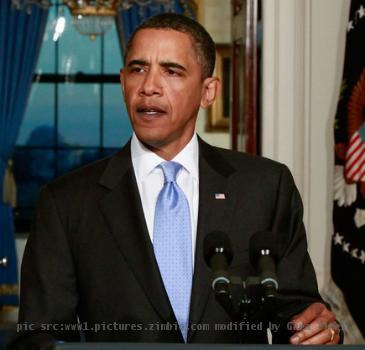AP Interview: Georgian president confirms uranium seizure, blames instability on Russia
By Desmond Butler, APWednesday, April 21, 2010
Georgia confirms highly enriched uranium seizure
NEW YORK — Georgia’s president said his country had seized a shipment of highly enriched uranium, blaming Russia for creating the instability that allows nuclear smugglers to operate in the region.
Russia dismissed the claims Thursday and said Georgian President Mikhail Saakashvili’s comments were “unsubstantiated” and amounted to propaganda.
Saakashvili gave few details of the seizure during an interview Wednesday with The Associated Press, saying only that the uranium was intercepted last month coming into his country in the Caucasus region of southeast Europe.
The Georgian Interior Ministry said a group of foreign nationals had been detained, and the uranium was in a secure location.
The head of Georgia’s nuclear safety agency, Zaal Lomatadze, told AP Television News in Tbilisi that the “organized group of people tried to smuggle in a small amount of enriched uranium with the purpose of selling it to a would-be buyer.”
He said Georgia had registered such smuggling “attempts” involving Russian citizens as well as people from the breakaway Georgian territories of Abkhazia and South Ossetia. “What will happen in the future of course is hard to say … but we know it could be a potential problem,” he said. Georgia borders Russia to the south, with all but one border crossing going through the breakaway regions.
Russia’s Foreign Ministry rejected the Georgian claims outright.
“It’s not serious to make such unsubstantiated statements,” ministry spokesman Igor Lyakin-Frolov told The Associated Press in Moscow. “(Saakashvili) must be fully honest in saying where and when it happened, instead of using it for political purposes and propaganda.”
Saakashvili’s government no longer controls the regions of Abkhazia and South Ossetia, which declared independence after the 2008 Russia-Georgia war, and the president said the smuggling is evidence of a security black hole in the area.
Such seizures have come “mostly from the direction of Russia,” Saakashvili said.
The two countries have had tense relations for years, with their leaders routinely trading barbs.
During the brief August 2008 war, Russia destroyed much of Georgia’s military infrastructure and occupied the two territories. Georgia has protested fiercely, claiming that Russia is trying to annex the regions.
Only Venezuela, Nicaragua and the South Pacific island nation of Nauru have followed Russia’s example and recognized both regions as independent states, while the rest of the world considers them part of Georgia.
Russia has since taken steps to establish long term military bases close to the territories’ borders with Georgia proper, and Saakashvili said it has been building up its artillery there, posing a menacing threat to Georgia. In the interview, Saakashvili appealed for more western support, saying western involvement in the region is his country’s best defense.
“We are not asking for an American troop presence,” he said. “We are asking for an American political, economic and security presence.”
South Ossetia’s border is a mere 30 miles (48 kilometers) from Georgia’s capital, Tbilisi.
News of the uranium seizure emerged during last week’s nuclear security summit in Washington, which was hosted by President Barack Obama and that Saakashvili attended. It was first reported by Britain’s The Guardian newspaper.
Obama has pointed to Russian cooperation as essential to his goal of securing all of the world’s nuclear materials within four years. At the summit, Russia and the U.S. signed a deal to dispose of tons of weapons-grade plutonium.
But Saakashvili said Wednesday that under Russian control, Georgia’s two breakaway regions have become havens for nuclear smugglers.
“If you are legally in occupation then you are responsible for controlling proliferation,” he said.
He pointed to a 2006 sting stemming from an investigation in South Ossetia as evidence of the smuggling problem in the breakaway republics. In that instance, Georgian authorities arrested four people accused of trying to sell a small quantity of highly enriched uranium.
Saakashvili also said that Russia’s military buildup in the breakaway regions are a threat to his country’s security, noting that Russia has “not only the ability, but the intention to depose our government.”
“Russia is involved in geopolitical games all around us,” he added. “Vladimir Putin has never given up on the threat to restore some sort of Soviet Union.”
In one incident in July that was never disclosed, Saakashvili said, a Russian commander upset over an officer’s defection from the breakaway territories to Georgia ordered Russian tanks 10 miles (16 kilometers) into Georgia proper. He said that there have been at least three defections of Russian officers to Georgia since the war.
Saakashvili said U.S.-Georgian relations have not suffered from the Obama administration’s efforts to improve relations with Russia. He said he has been pleased by the administration’s public support of Georgian sovereignty and steps to boost economic cooperation and trade.
Saakashvili warned that Georgia is a test case for whether former Soviet countries can assert their independence from Russia and integrate with the West. He said that Georgia was still looking toward NATO membership, despite the apparent reluctance of many member countries to expand the security alliance toward Russia.
“The international situation in this region cannot be static,” he said. “Either the West will expand eastward or hard-liners in Moscow will expand westward.”
Saakashvili added that he thinks that Russia is currently too tied down with its own internal problems including unrest in the North Caucasus to make a move militarily against Georgia.
Associated Press Writer David Nowak in Moscow contributed to this report.
Tags: Barack Obama, Eastern Europe, Europe, Georgia, Moscow, New York, North America, Russia, Smuggling, Tbilisi, United States, Vladimir Putin








